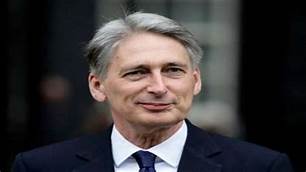By Ben Kerrigan-
Philip Hammond budget’s to end austerity will involve imposing heavy taxes on private sector contractors.
Hamond promised measures to help “the strivers, the grafters and the carers”, claiming his proposals would pave the way for a “brighter future”.IT contractors, engineers and consultants are among set to be affected the most by the taxes. His inflated tax measures are also expected to extend to private firms. The smallest 1.5 million businesses will not be affected by the new rule, the Chancellor stated.
Hammond also announced an extra £500m for no-deal Brexit preparations but said a deal with Brussels would allow him to pump more money into public services. He also announced a new tax on the profits generated in the UK by global online “giants”, such as Facebook, which he said would come into effect in April 2020 and raise £400m a year.
Speaking in the Commons, Mr Hammond promised a “Budget for hard-working families” and told MPs “we have reached a defining moment on this long, hard journey” after repairing the damage to the public finances caused by the financial crash.
Hammond promised an extra £1bn to university credit, given the near disaster the transition from benefits to Universal Credit has created. He imposed a freeze on beer, cider and spirits duty that saves 2p is next to nothing. However, his promise of a £1,000 increase in the amount people can earn before losing benefits will please the unemployed and job seekers. It will come at a cost of up to £1.7bn a year
Promises of reduction in alcohol prices is negligible . It saves 2p on a pint of beer, 1p on a pint of cider, and 30p on a bottle of Scotch or gin. The rise of 33p in a packet of 20 cigarettes goes by 33p cannot really be complained about. Cigarettes are factually bad for the health, therefore smokers cannot complain about any rise in the price of cigarettes.
Hammond’s announcement for an extra £1bn over five years to help those moving to the new payments and a £1,000 increase in the amount people can earn before losing benefits will please job seekers and the unemployed. It will come at a cost of up to £1.7bn a year. Hammond came up with a number of pledges that sound good if they will actually be implemented. Critics believe some of the promises are ambitious and not likely to happen.
The potential impact of a no deal is a worrying factor for many, but Hammond could possibly have a strategic plan based on wider knowledge he has. The British public should be optimistic he can pull off his promises, but questions will still be asked.




